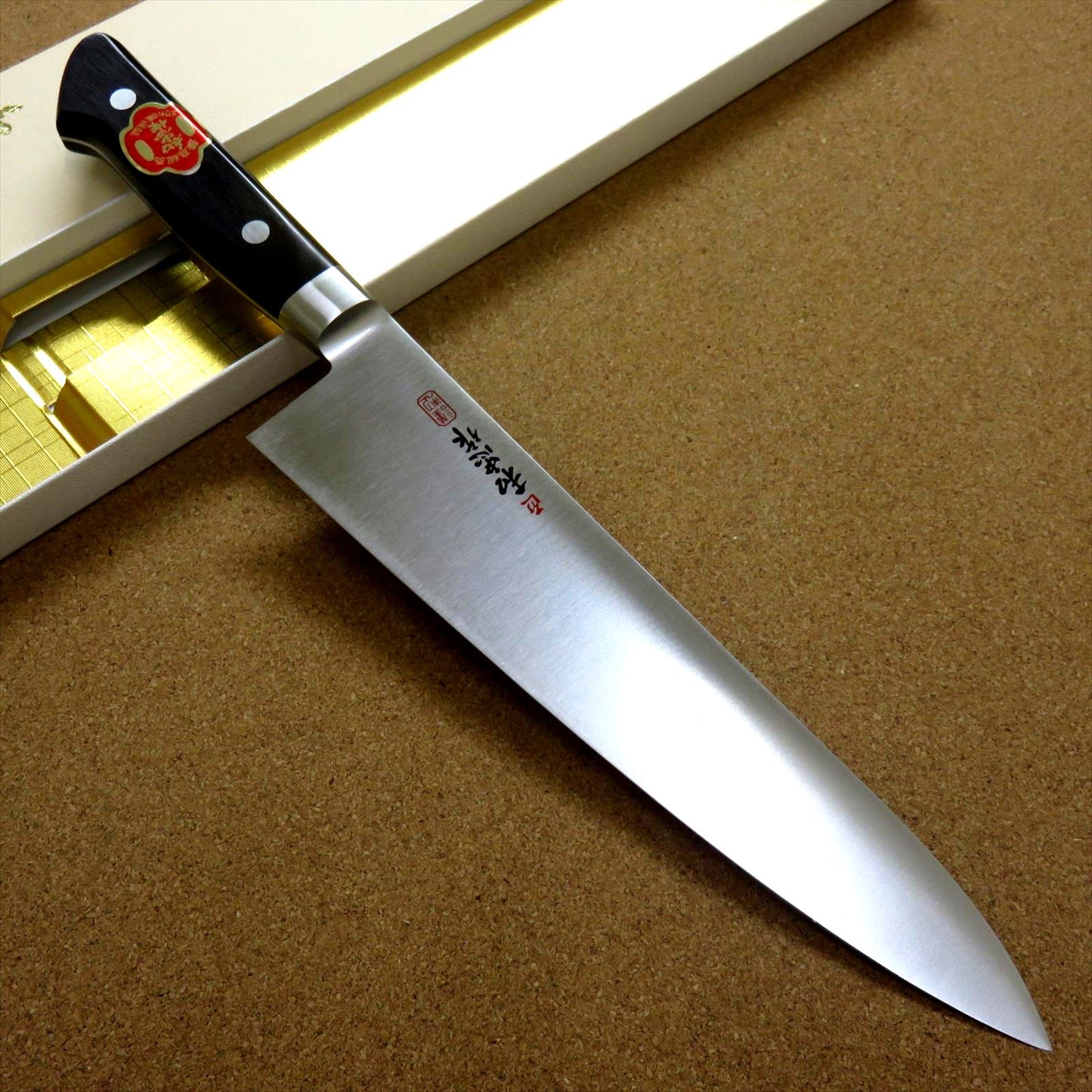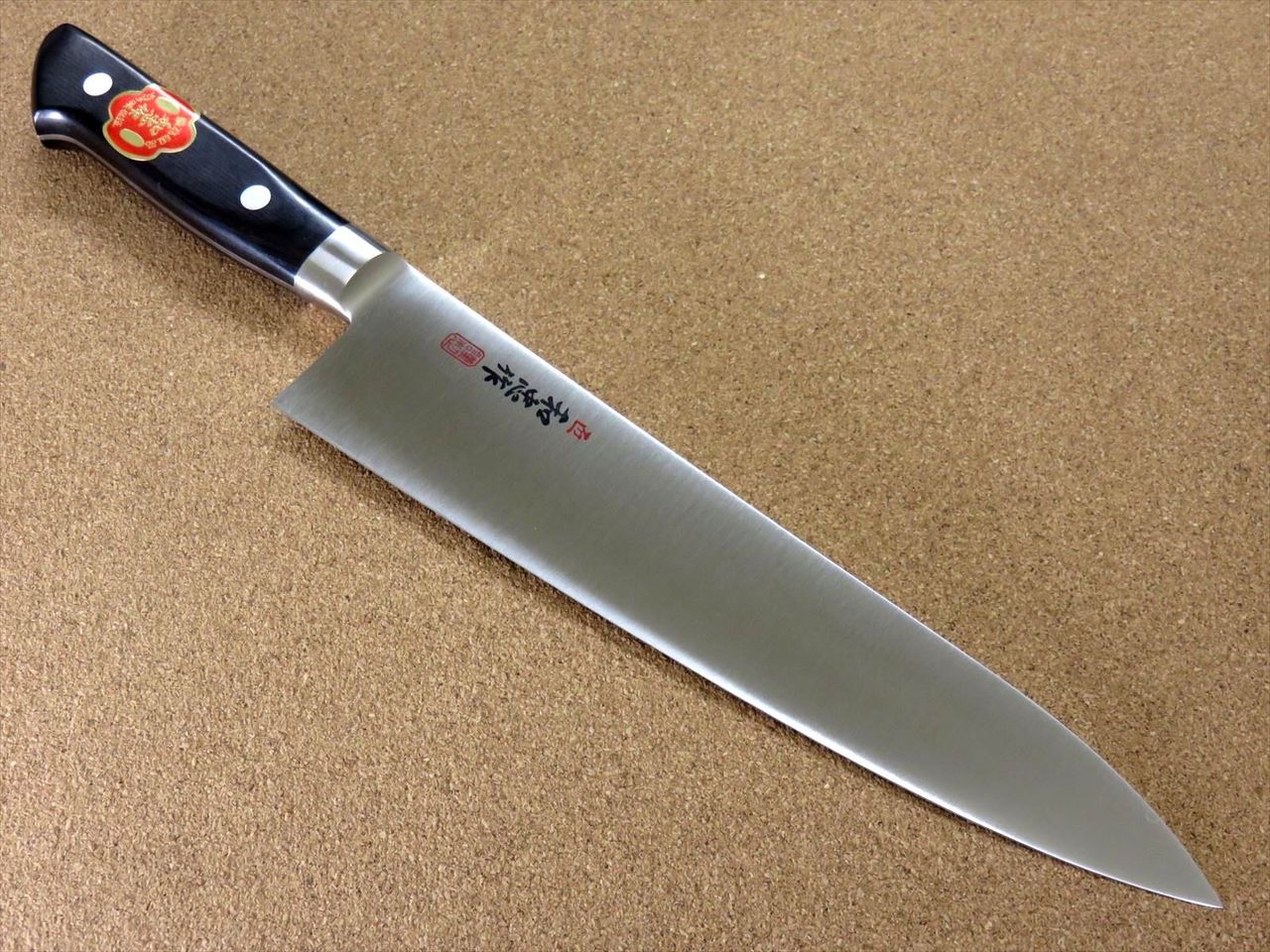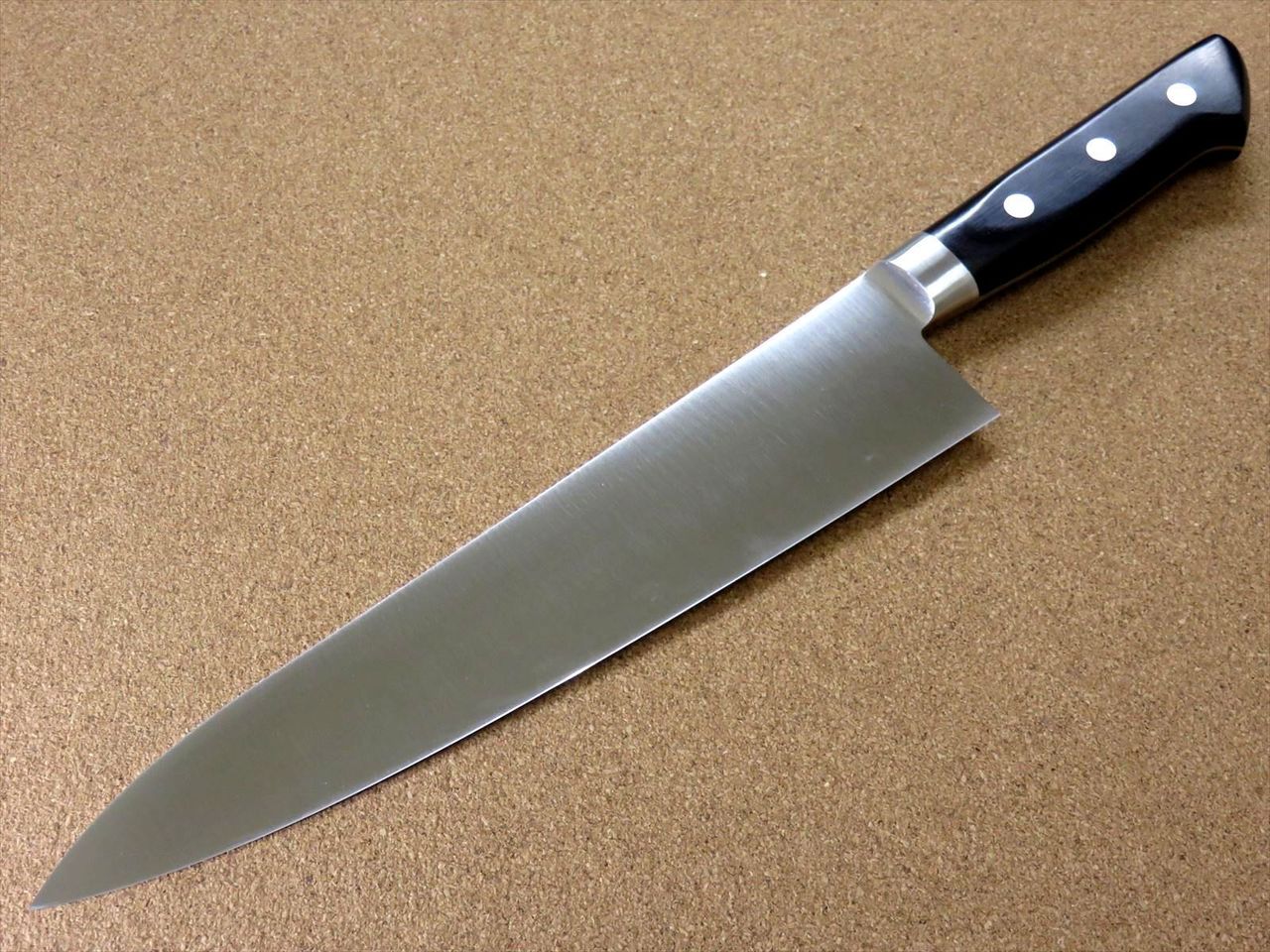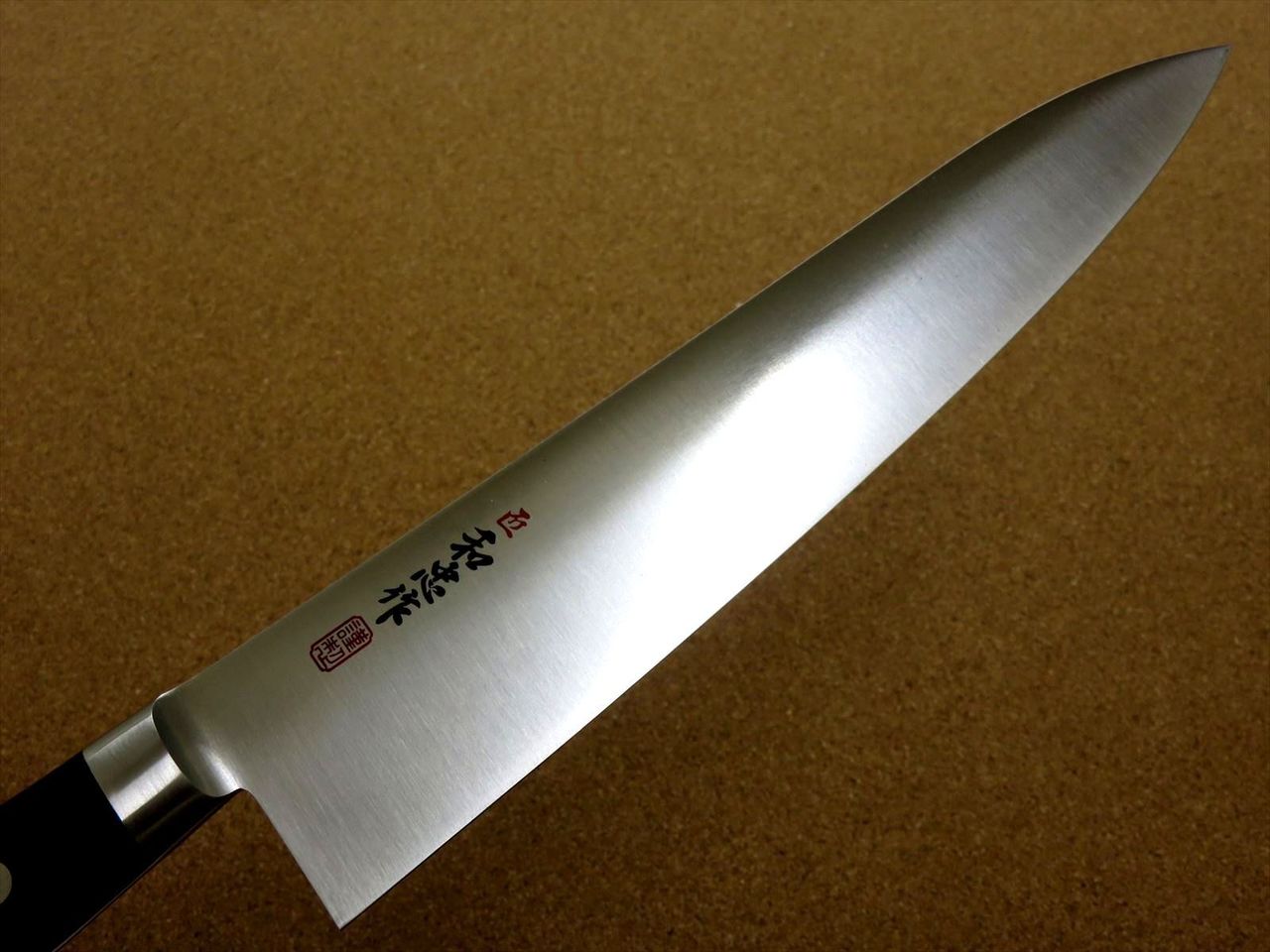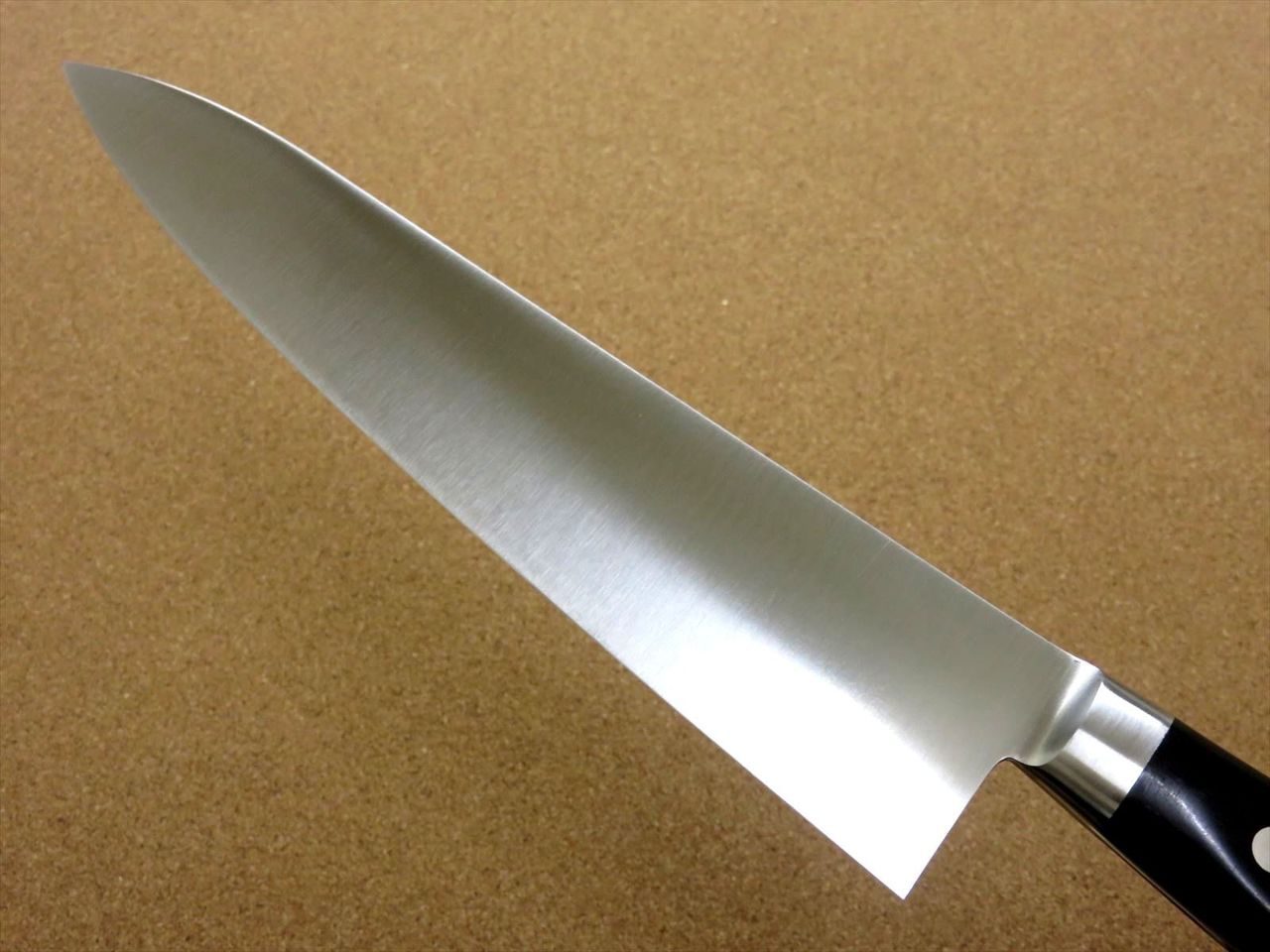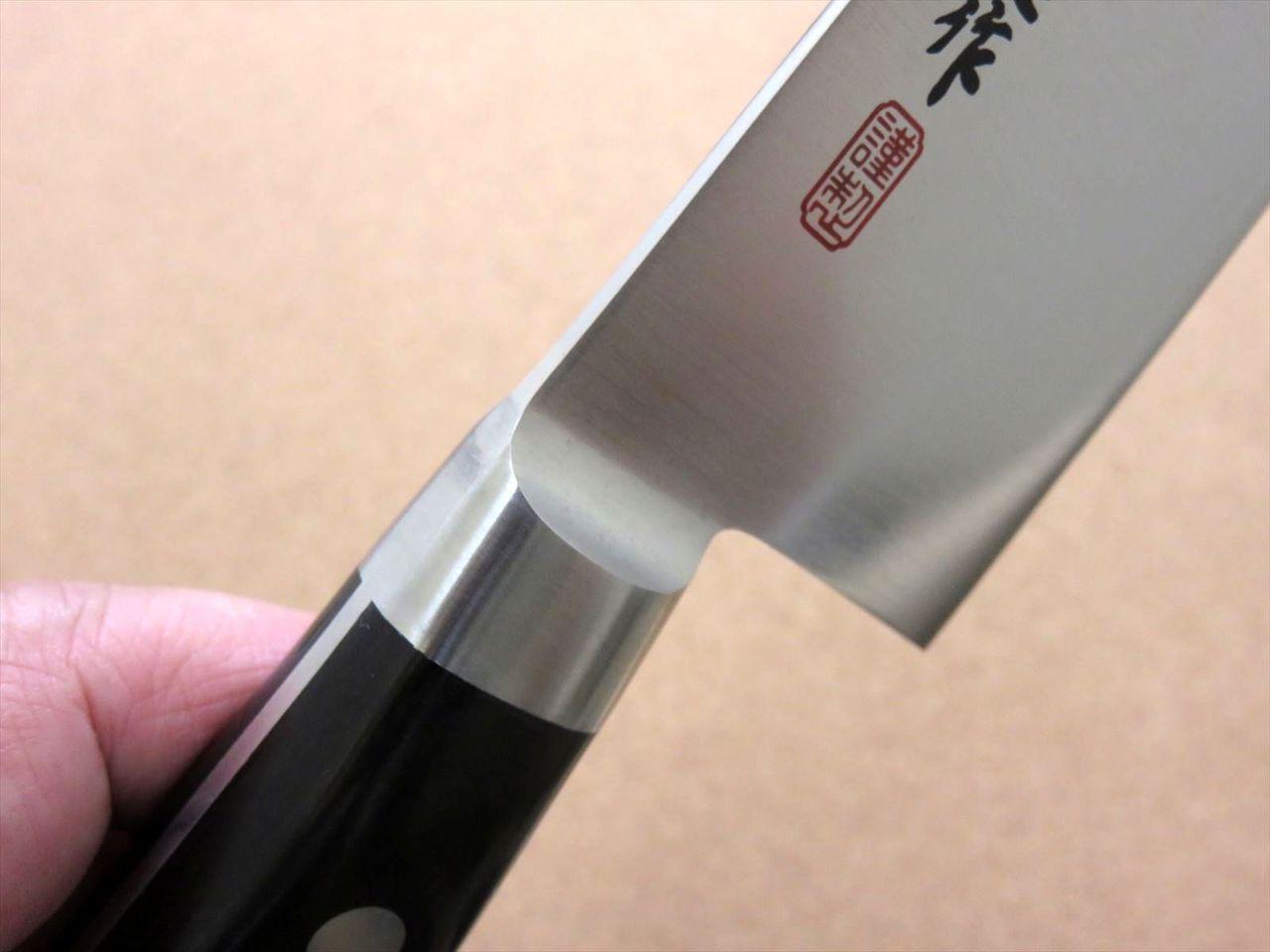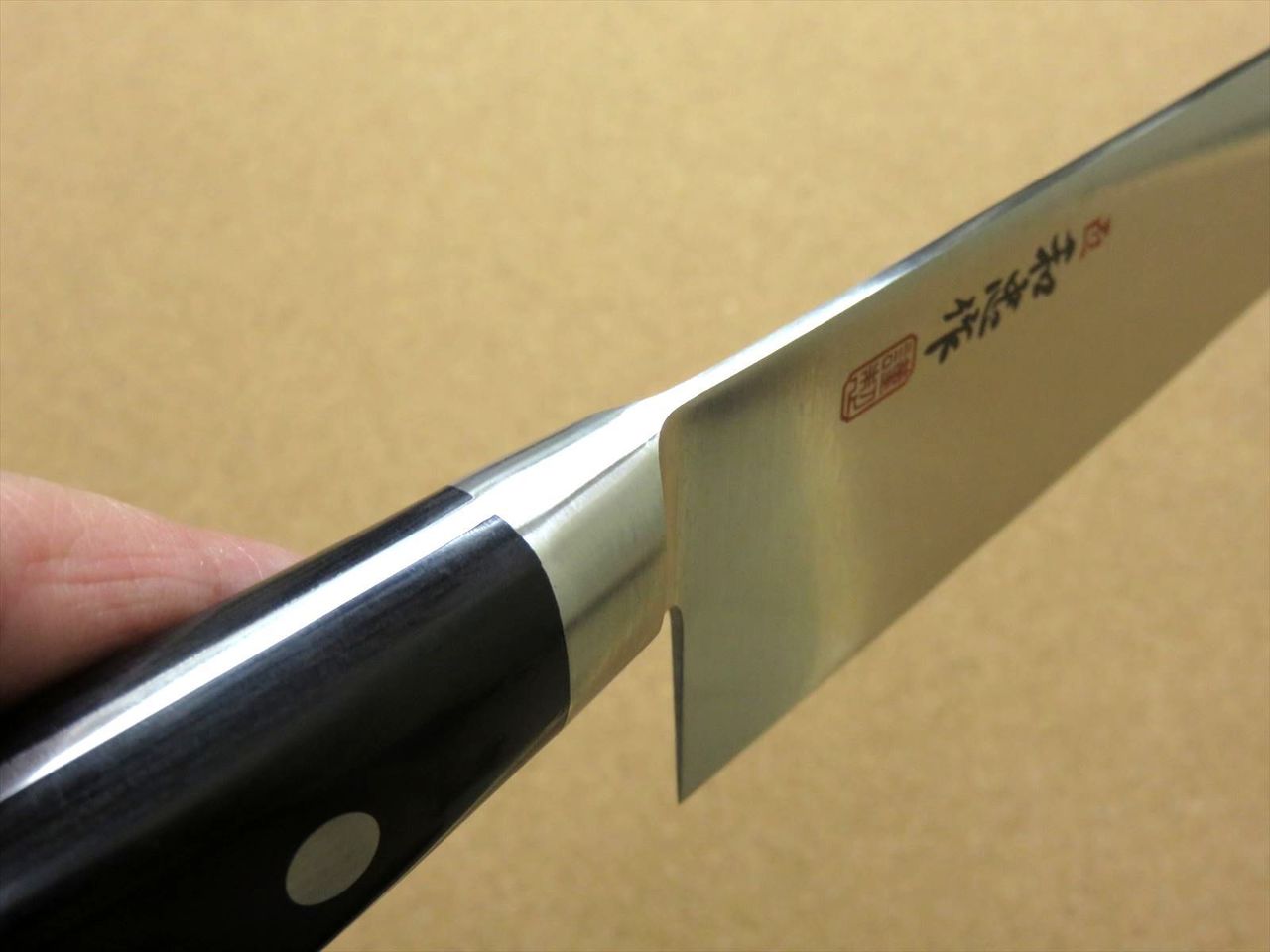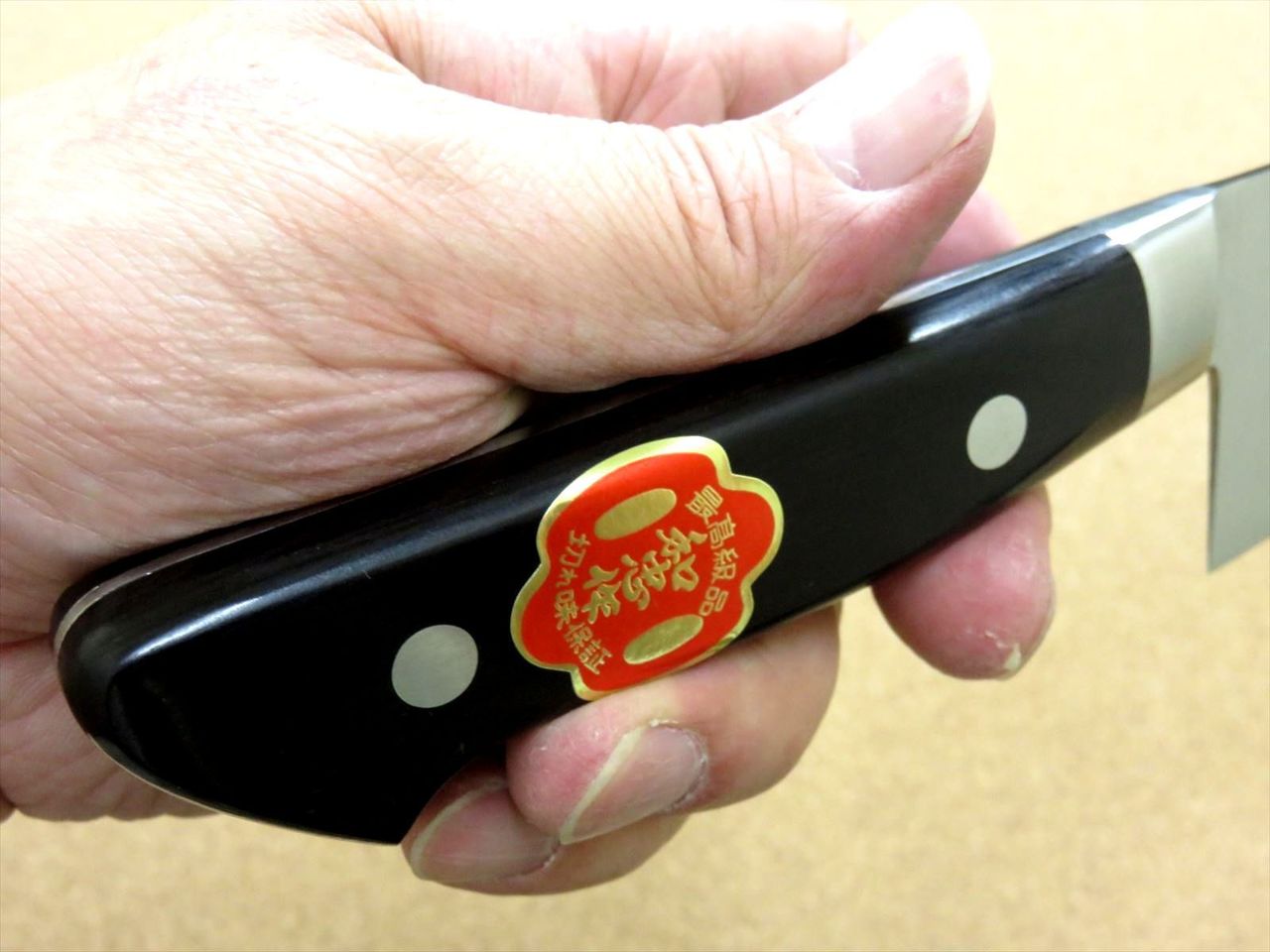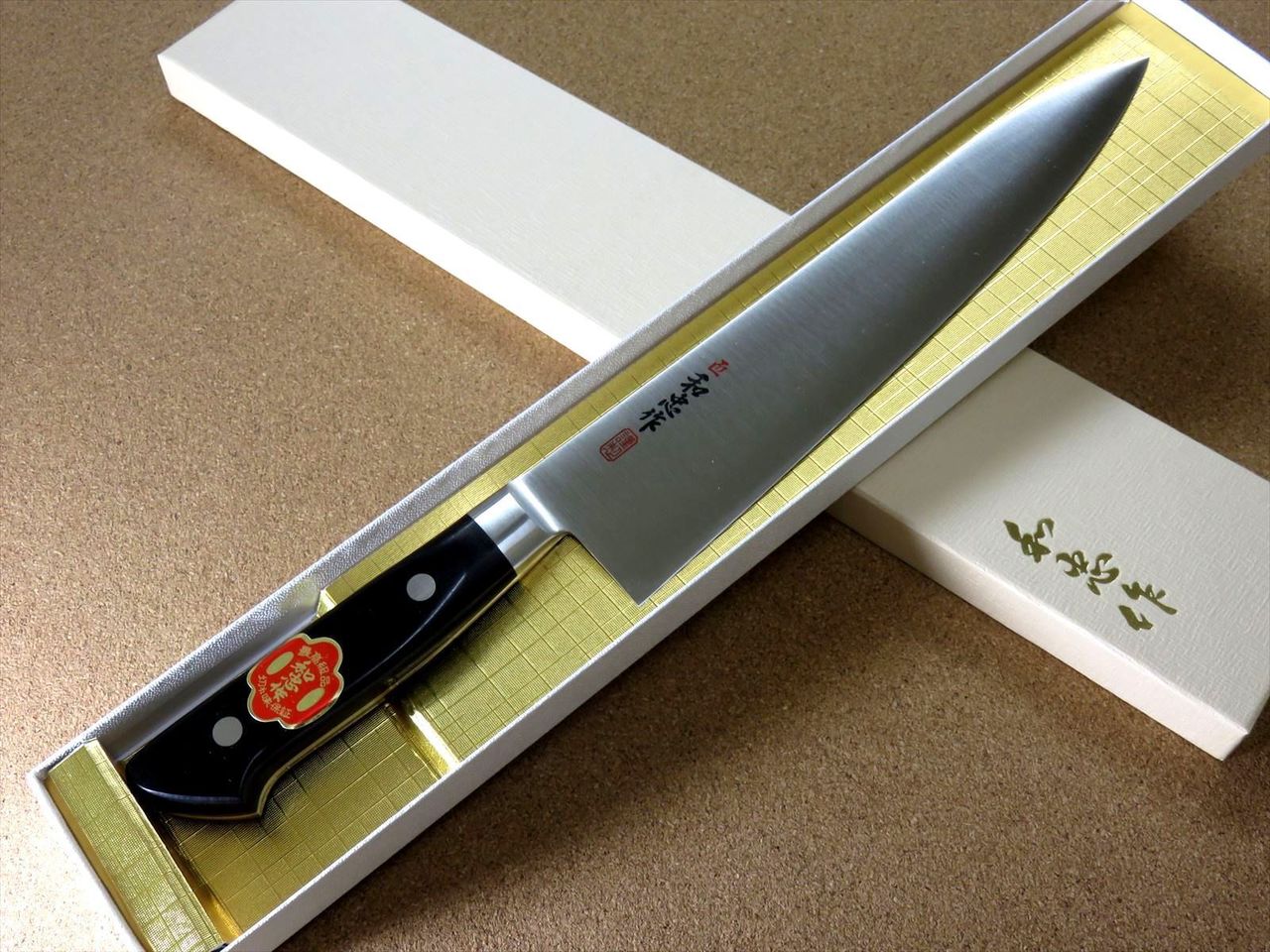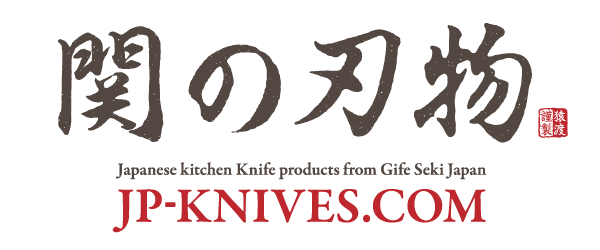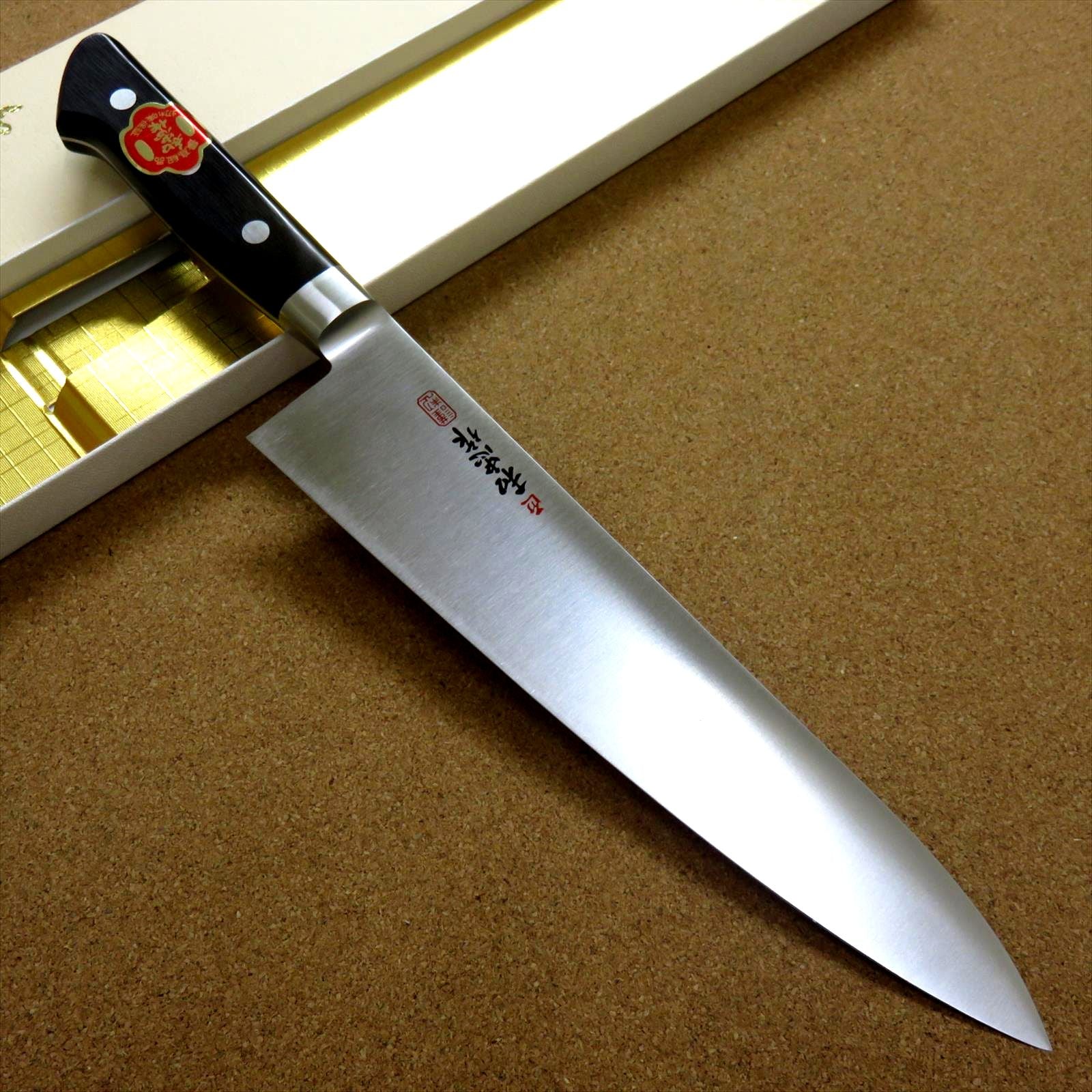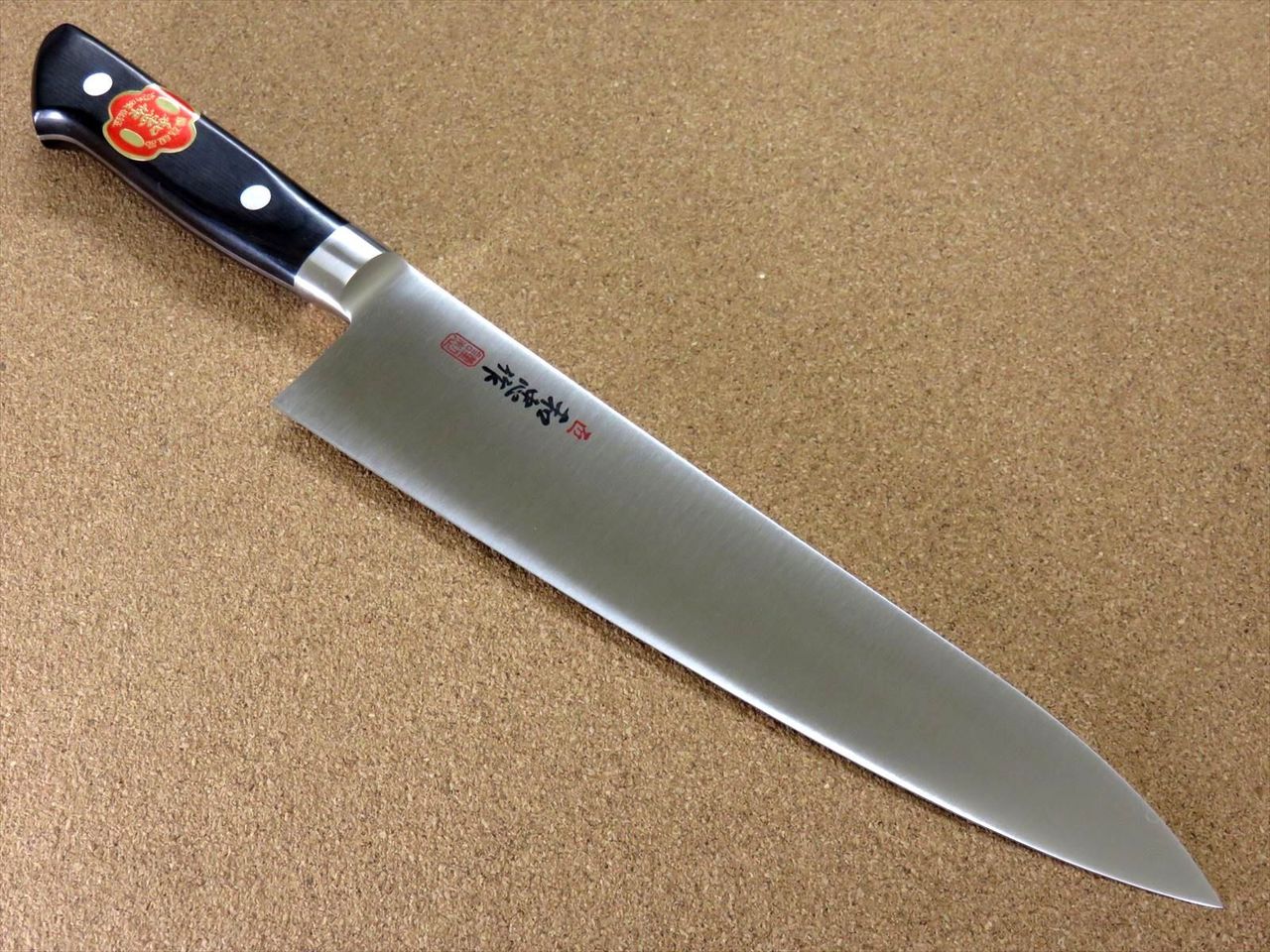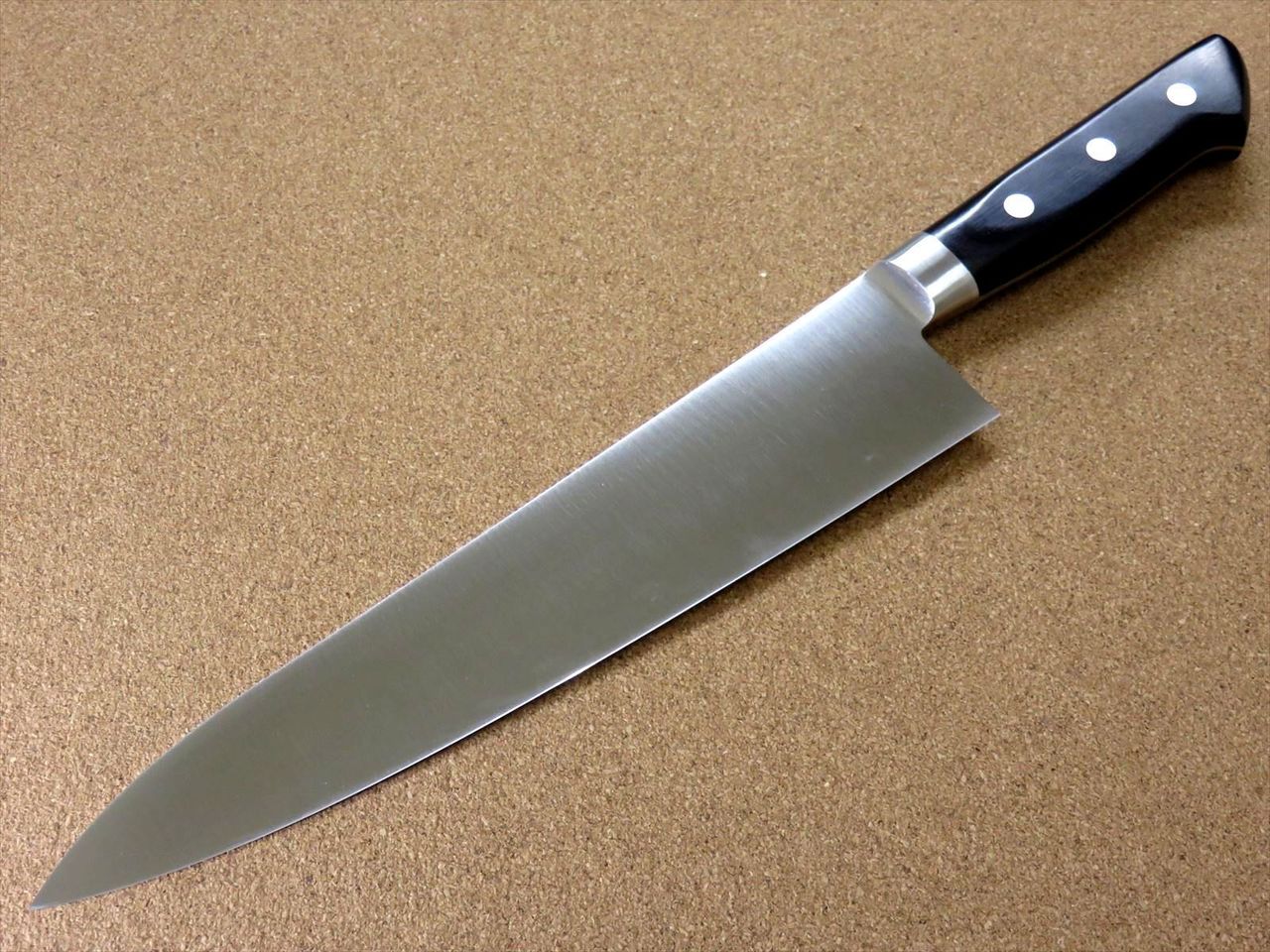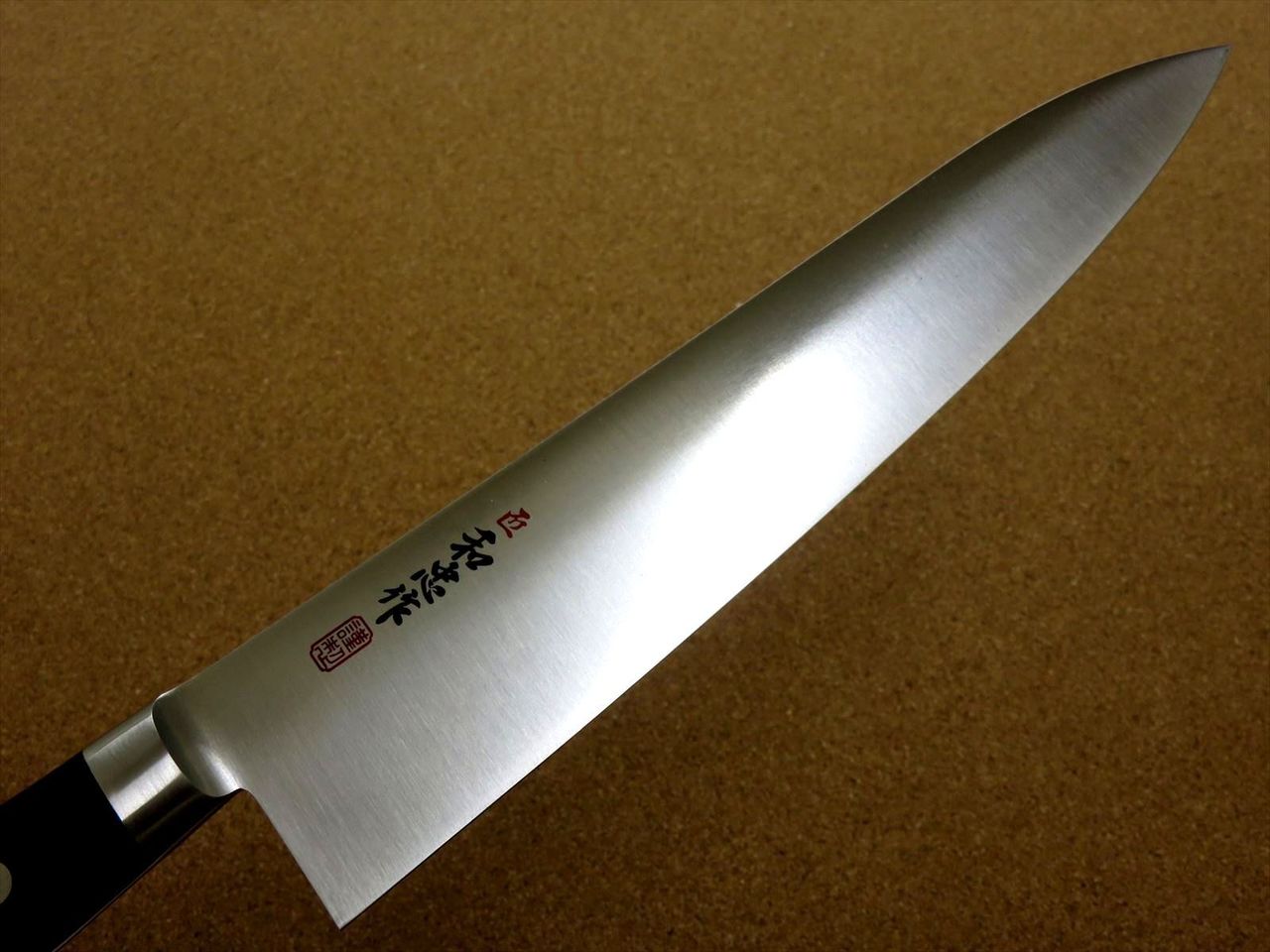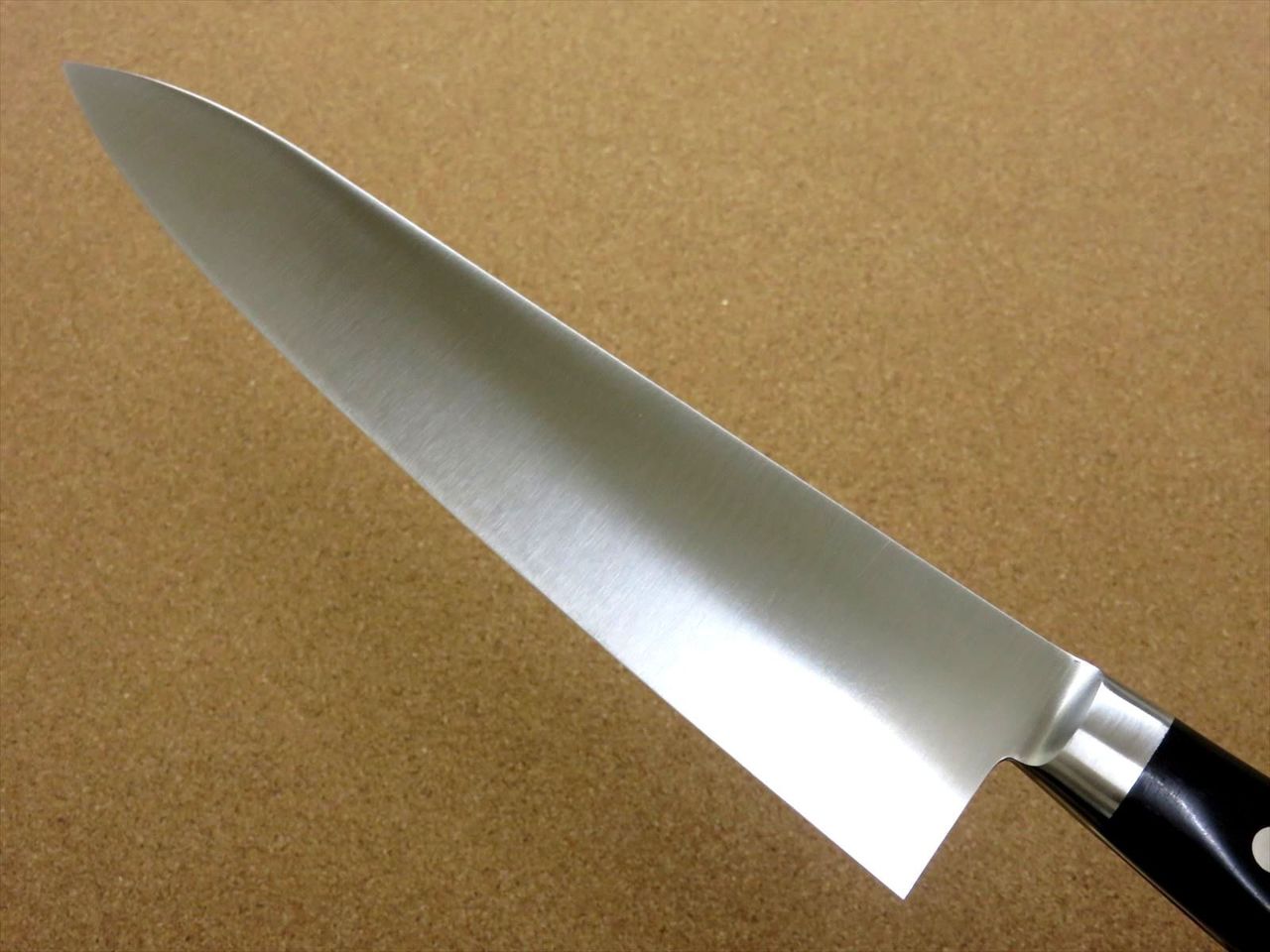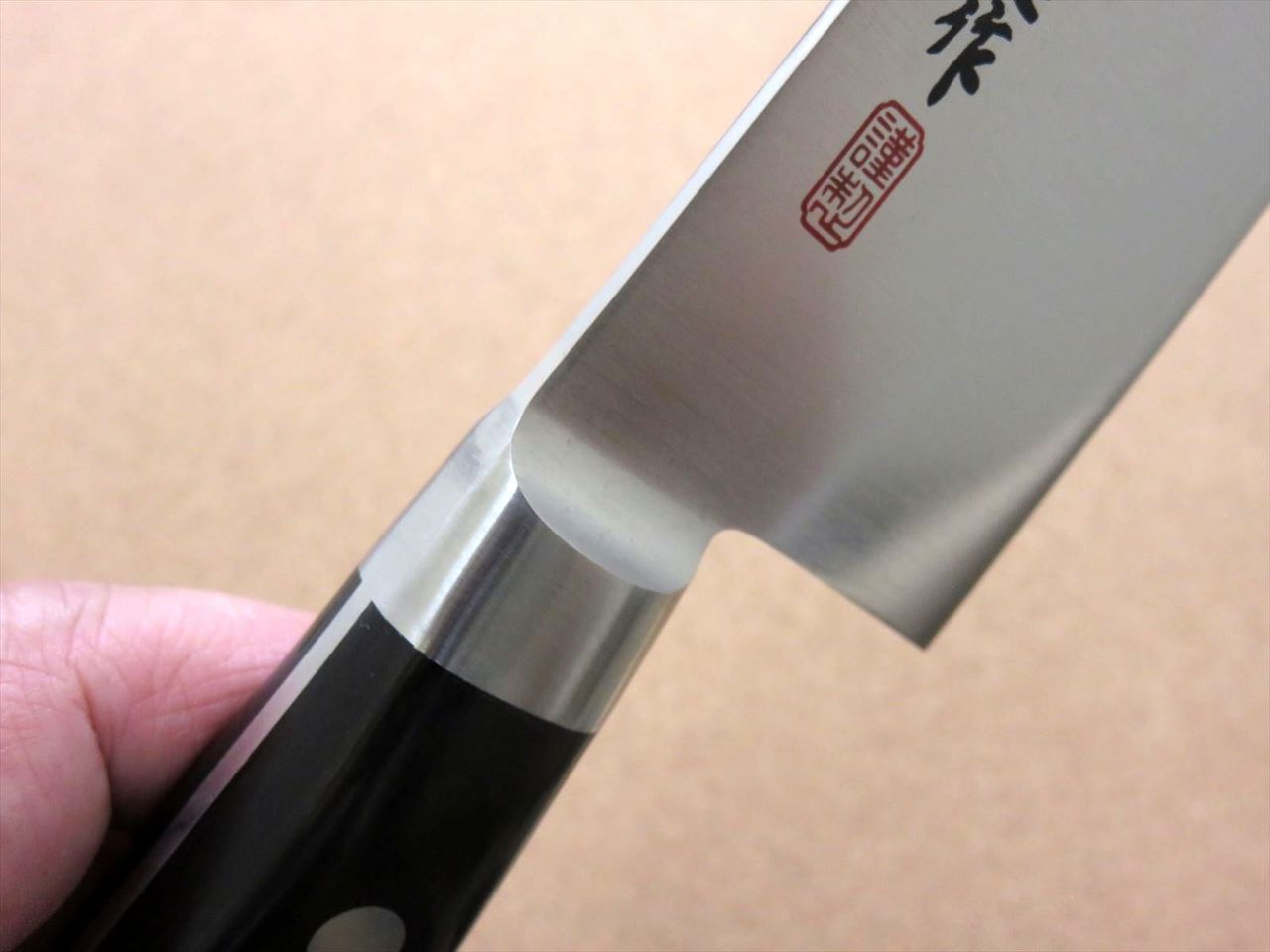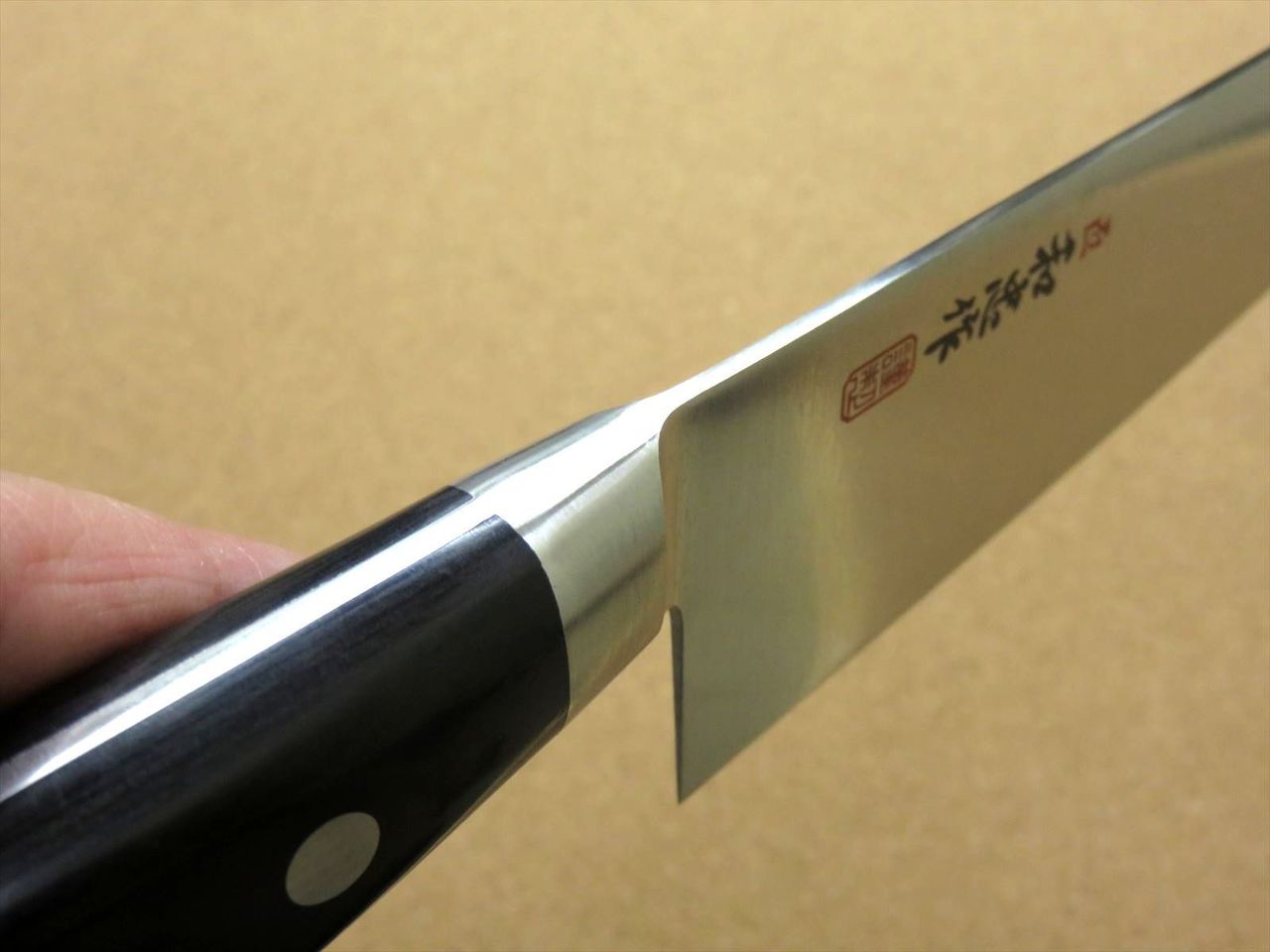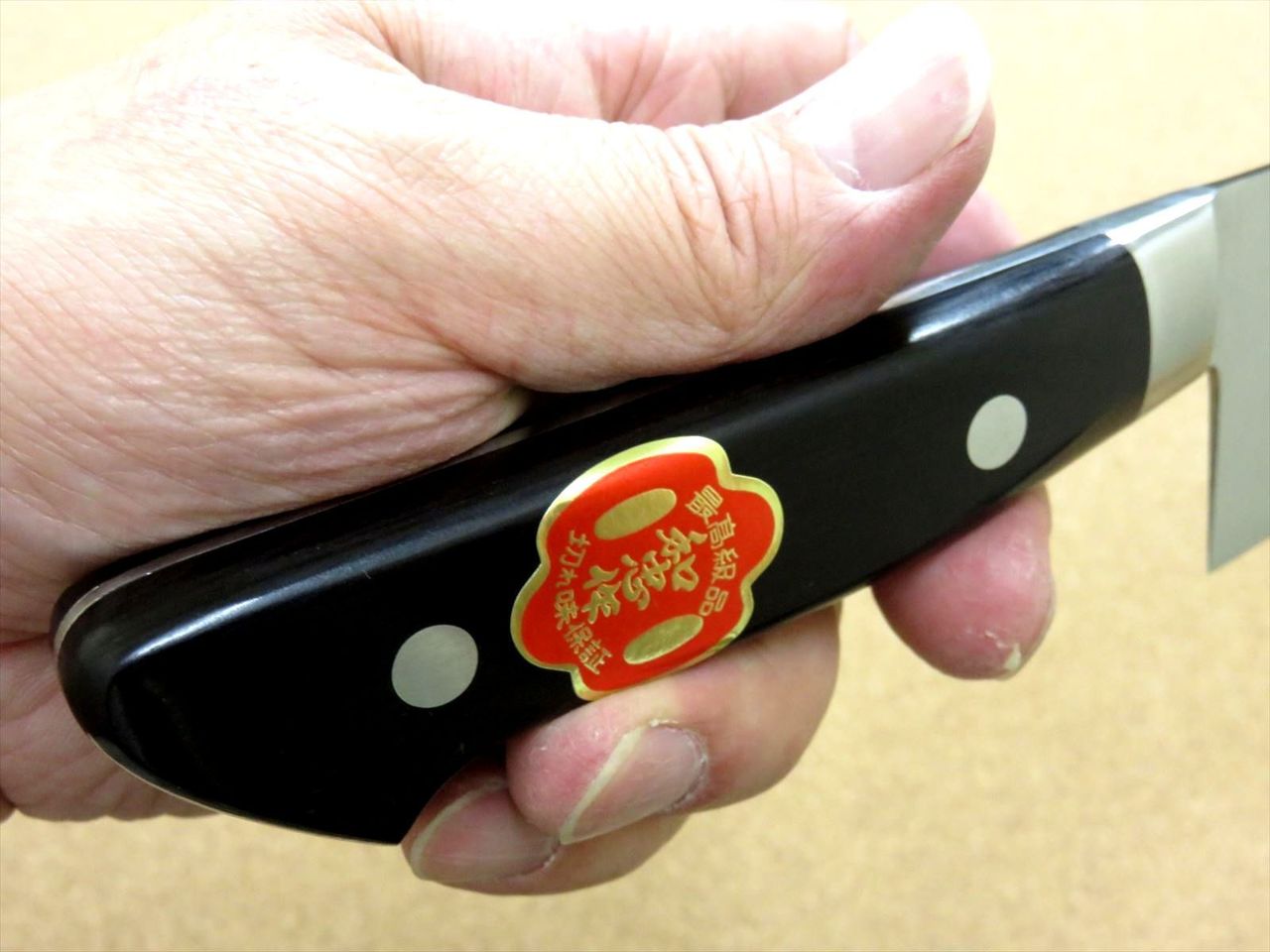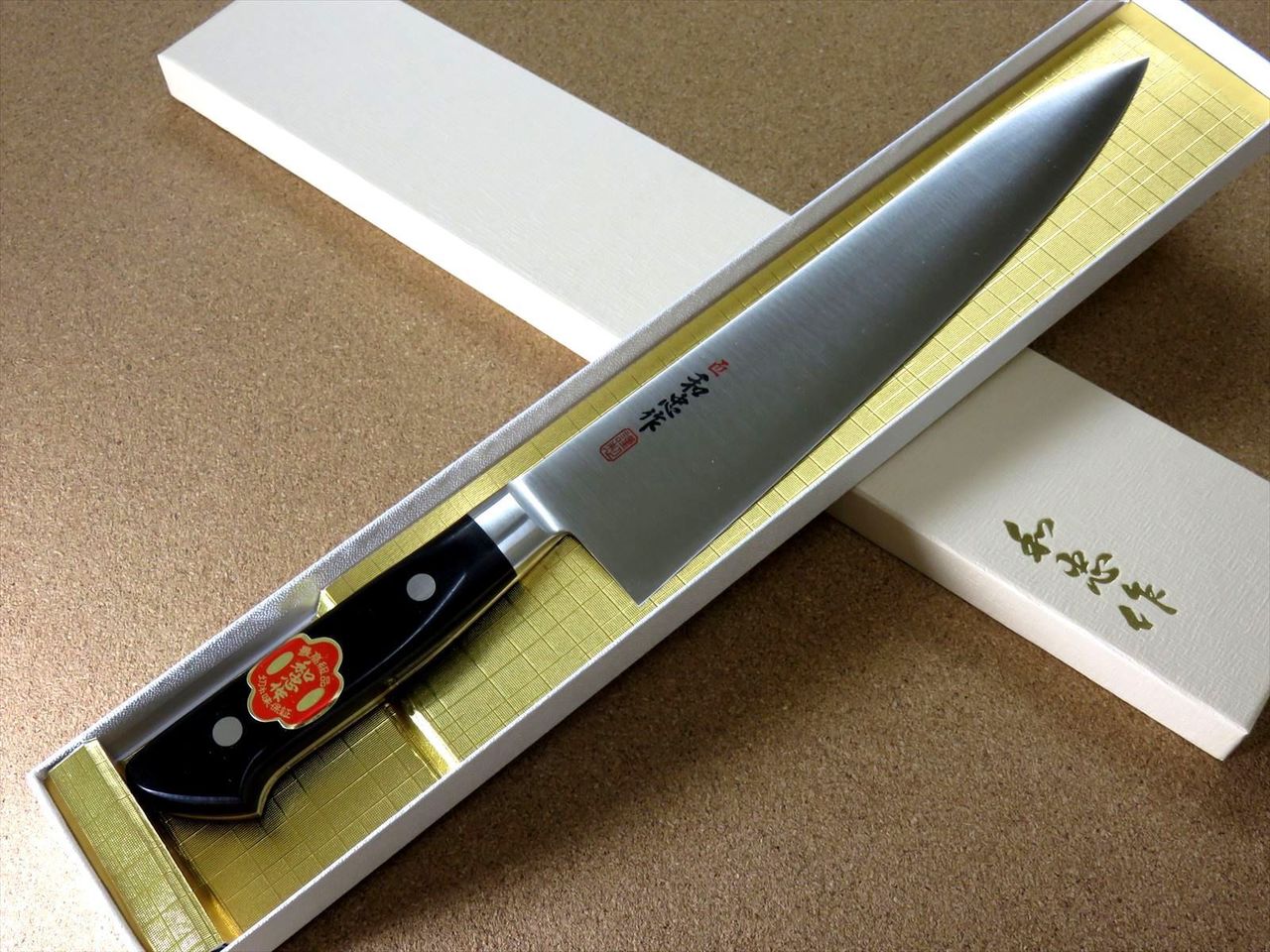jp-knives.com
Japanese Professional Cook Kitchen Gyuto Chef's Knife 240mm 9 in VG-1 SEKI JAPAN
Japanese Professional Cook Kitchen Gyuto Chef's Knife 240mm 9 in VG-1 SEKI JAPAN
Couldn't load pickup availability
Shipping
Shipping
Refund / Cancel
Refund / Cancel
Useful Information of Knives
Useful Information of Knives
Tips on selecting kitchen knives
About blade materials
There are three main materials: Stainless steel, Carbon steel and Ceramic.Please read carefully to understand the benefits of each material, and select the knife that fits your needs and style perfectly.
Stainless steel
Stainless steel is rust resistant, but less sharp than carbon steel.However, most Japanese stainless steel blades are mixed with various steel materials to increase sharpness.
You will find that some stainless steel blades will retain its sharpness as much as those made of carbon steel.
Those stainless steel blades are not as rust resistant as blades made of 100% stainless steel.
They may get rusty if you store them without properly drying after use, or leave them without washing for a long period of time after cutting high acidic food such as lemons.
Stainless steel blades are recommended for those who do not want to spend time on maintenance as they do not rust as easily as carbon steel blades.
Examples of stainless steel (Gingami (Silver steel), molybdenum steel, VG series, A series, 420, 440 etc.,)
Carbon steel
Carbon steel blades are sharp and retain their sharpness for a long time, but can easily rust.Professional chefs and cooks prefer to carbon steel blades.
They are recommended for people looking for a sharp knife and who are willing to spend some extra time on maintenance.
Examples of carbon steel (White steel, Yellow steel, Blue steel etc.,)
Ceramic
Thin, sharp and light weight, ceramic is recommended for women or seniors.As it is not a non-metal material, it does not get rusty and easy to maintain.
However, ceramic blades are not so easy to use when cutting something hard or butchering meat.
Also blades may break when cutting something hard.
When ceramic blades get dull, you need to sharpen with a diamond whetstone as you cannot sharpen with a regular whetstone or sharpener.
About the blades
For safety reasons, most manufactures ship their blades about mid-range sharpness.After purchasing your items, please sharpen with a #3000 whetstone to finish.
This helps maintain the sharpness and the longevity of the blade.
Daily maintenance is as important as choosing the right material for your kitchen knives.
How to take care and store your kitchen knives
We hear complains that peoples knives get rusty very quickly, improper maintenance appears to be the number one cause for most cases.Most Japanese culinary knives have various steel added to stainless steel to make the blades sharper.
Even though stainless steel is harder to get rusty, poor maintenance can cause the blades to rust.
After cutting citric fruits, wash off completely to remove the acidity, wipe off excess water and dry completely to prevent rust.
Carbon steel knives are very sharp and cut food very easily, however they can easily rust without proper maintenance.
After use, rinse with hot water, wipe off excess water and dry before storing, which minimizes rust and also ensures proper hygiene.
Before storing for a long period of time, add thin layer of vegetable oil on the blade, wrap in a newspaper and store in a well-ventilated area.
How to sharpen blades
Sharpen your kitchen knife blades with a mid-grid whetstone, somewhere between #800 to #1500.Even though it depends on the type of blades, rule of thumb is to retain about 15-degree angle when sharpening.
Please be extra careful, as sharpening with an incorrect angle or not retaining the same angle can chip or dull the blades.
If you prefer, sharpen with a finer-grid #3000 whetstone for additional sharpness and finishing.
For chipped or damaged blades, first sharpen with a rough-grid whetstone, about #120 until the straight blade line is obtained, and then use a mid-grid whetstone.
It will be best to ask for professional help for those chipped or damaged blades, as it requires some skills and experience.
We also recommend having a professional to sharpen your knife if you feel you are not skilled enough to do so or your kitchen knives are made from the materials that are better off in a professionals' hands.
Saw or serrated blades cannot be sharpened with a whetstone or a sharpener, ask your professional sharpener or sharpen with a small file.
We offer various maintenance products for your easy sharpening experience.
There are various whetstones on the market, and you may be confused on which one to purchase.
Our store offers various whetstones based on the purpose and applications.

We recommend whetstones for those looking for professional finish.

We also offer a support holder to retain the 15-degree angle for first-timers sharpening with a full-blown whetstone.
Those support holders are great for those who are uncertain if they are retaining a certain degree while sharpening kitchen knives.

Stick type ceramic whetstones are recommended for daily household use.

We recommend sharpeners for someone who are unsure about retaining a degree sharpening with a whetstone or prefer not to use a whetstone.
We carry very compact designed sharpeners for household use in mind.
However, you cannot sharpen single-side angled blade kitchen knives with sharpeners.
SKU:gt_st-c240

Originally designed for separating meat (carcass), they have thin and long blades for meat cutting.
There are various sizes besides this.
From 180mm that are great for cutting vegetables and bread at home, to 400mm that are great for separating meet. Versatile knife.
Item Condition : Brand New
Brand : Gotou Cutlery
Model : Kazutada
Type : Chef's Knife
Total length : 370mm (14.6")
Blade length : 240mm (9.4")
Blade width : 49mm (1.9")
Blade thickness : 2.2mm (0.09")
Net weight : About 210g
HRC : About 60
Material
Blade : VG-1 Stainless Steel
Handle : Laminated plywood with Bolster

Stainless steel is rust resistant, but less sharp than carbon steel.
However, most Japanese stainless steel blades are mixed with various steel materials to increase sharpness.
You will find that some stainless steel blades will retain its sharpness as much as those made of carbon steel.
Those stainless steel blades are not as rust resistant as blades made of 100% stainless steel.
They may get rusty if you store them without properly drying after use, or leave them without washing for a long period of time after cutting high acidic food such as lemons.
Stainless steel blades are recommended for those who do not want to spend time on maintenance as they do not rust as easily as carbon steel blades.
Please make sure you wipe water out and store it.
Made in SEKI JAPAN

Share
